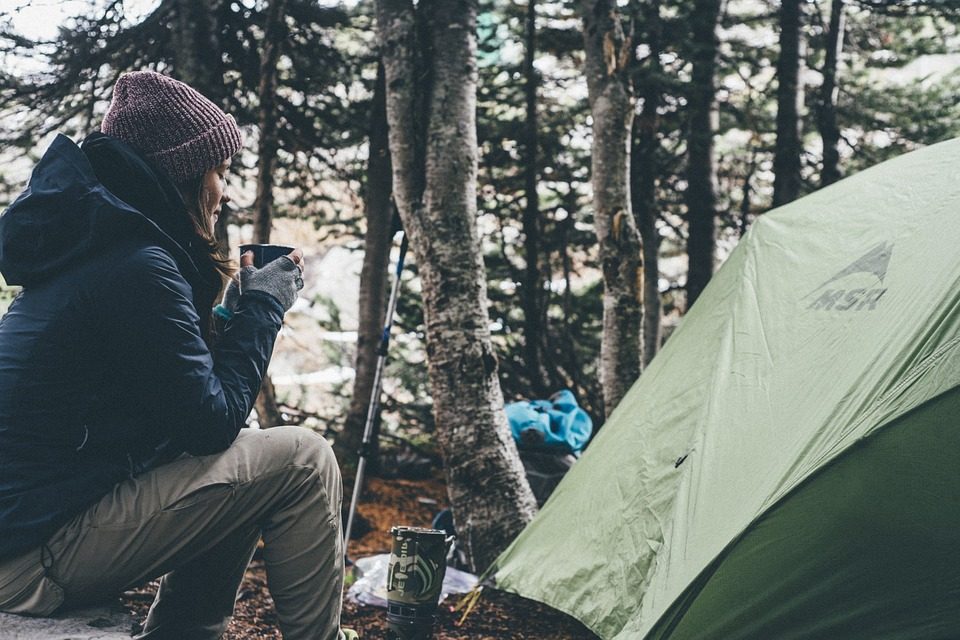It’s fair to say that come the Summer season, so many of us chose camping holidays for a fun and affordable getaway. It gives us the opportunity to escape our busy lives, immerse ourselves with the great outdoors and nature, and be able to just head off anywhere we like without booking complications and heavy planning.
Plus, it’s a great way to spend quality time with family and friends in a different holiday environment.
However, it can be riskier than jetting off to some holiday destinations. Camping is extremely weather dependant, meaning the weather can sometimes make or break your trip. That being said, you have complete flexibility: you can throw a tent and sleeping bag in the car and head off on a whim for a quick over-nighter. For others, it could be a road trip that lasts weeks on end.
1. Think logically about food options
Food needs to be given a lot of thought before you start packing up your tasty treats for the trip. Remember, you no longer have access to those handy things like fridges and freezers! Start by writing down what you plan to eat for each meal under the headings of breakfast, lunch and dinner. Then prepare what you can at home-marinate the meats, cut up vegetables, wrap up potatoes in foil. These are things you’ll struggling to do once at camp, so this makes the cooking and eating setup much less complicated.
A cool bag is essential, and when you pack this, set out the foods meal by meal, day by day. For example, cool bags are good for the travel, but ideally get your meats eaten on the first night. And don’t forget to think about how you’ll serve each meal so you don’t forget condiments and necessary utensils – like can and bottle openers!
2. Consider ways to power up your trip
If you’re planning to camp for a good few days or even weeks, one item that should be considered is a generator. You can now get modern, purpose built, camping generators, which are much more silent and lightweight than other generators. And when camping, you have to be respectful of those camping around you.
The most popular model for camping trips to look for is a diesel generator. These tend to be extremely lightweight, yet create enough power to run everyday appliances you may need for those longer camping trips. Plus, they tend to be super quiet.
A good quality portable diesel generator can let you use lights around your tent without having to use your car battery, keep important devices charged up, and let you play music.
3. Remember to bring rubbish bags
One thing a lot of campers forget to bring with them is rubbish bags which look after any disposables. These are essential for any type of camping trip, as some campsites may not have bins or recycling in close proximity, and leaving any rubbish lying around will only attract foxes and wildlife.
Bring a number of waste bags to keep your food, packaging and throw away cutlery/paper plates out of the way. It can be easy to forget, but when you get there, you’ll realise how essential they are.
4. Prepare for any type of weather
It’s a complete mystery if you’ll be greeted with lashings of rain, or glorious sunshine. Even if you head off on a camping trip in the heat of Summer, you can never know when a downpour is due. And alike, you never know when a heatwave could kick in also.
The weather friendly essentials include always bringing a range of sunscreens, umbrellas, waterproof jackets, change of socks and caps/sun hats, which cover you for pretty much all outcomes!
And with these, come other important essentials which can reflect the weather conditions, such as insect repellent, first aid kits, foil body wraps, extra blankets and any pain relief products. You should also make sure you know some basic first aid training as well. There are many companies that run first aid training courses, such as ottawa’s cpr training company, for example, so it is easy to brush up on these skills before your trip.
5. Washing up essentials
Whilst some campsites will come equipped with your washing up needs, a lot of them don’t. Especially if you’re off on a road trip, and could randomly end up pitching up and camping somewhere unexpected.
You’ll need to have with you an extensive range of items to hygienically wash up and keep bacteria on the low. This includes a washing up bowl, dish clothes, washing up liquid, biodegradable soap, sponges and food containers.
Mentally walk through how you would prepare meals and wash up at home, but imagine not having access to a kitchen. It will really help you plan and prepare your washing and cleaning essentials!
Now all that’s left to do is plan your sleeping arrangements, clothing and adventurous items! Happy camping…










